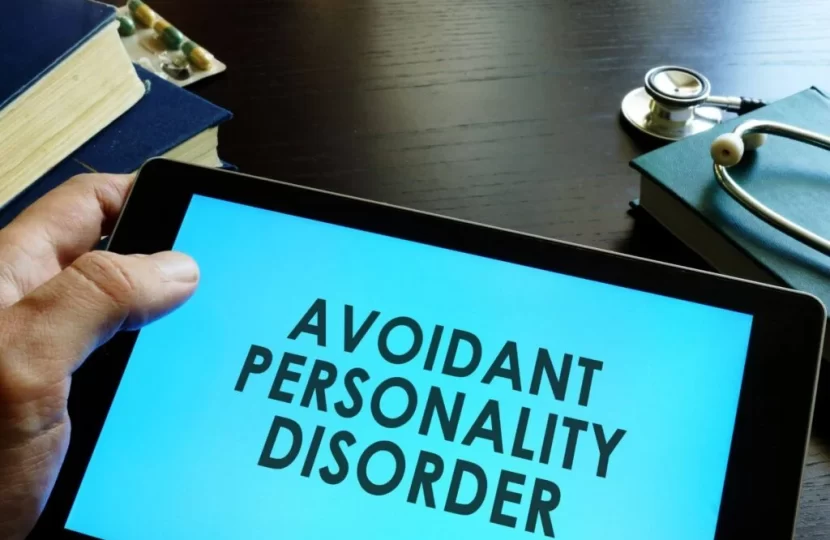Anxious Avoidant Personality
Anxious Avoidant Personality disorder more commonly known as Avoidant Personality Disorder (AvPD), is a type of personality disorder characterized by extreme social inhibition, feeling of inadequacy, and hypersensitivity to criticism. Individual with this condition often fear rejection or humiliation to such an extent that they avoid social interactions, even though they may deeply desire connection. Lets understand the symptoms, its impact and best treatment approach of Anxious avoidant personality disorder.
Common symptoms of avoidant personality disorder are:
- Extreme social anxiety: Fear of being judged, rejected, or criticized in social situations.
- Low self-esteem: A persistent feeling of inadequacy or inferiority compared to others.
- Avoidance of social activities: Preferring isolation over interaction due to fear of embarrassment.
- Fear of criticism or disapproval: Overly sensitive to any form of negative feedback.
- Reluctance to engage in new activities: Avoiding new experiences due to fear of failure or shame.
- Difficulty forming relationships: Tendency to shy away from intimate connections, even though they crave them.
- Chronic self-doubt: Persistent feelings of worthlessness or being “not good enough.”
How anxious avoidant personality traits can affect an Individual’s Life.
Individuals with anxious avoidant personality traits often live in a state of emotional isolation. They may withdraw from work opportunities, social gatherings, and even close relationships; due to a fear of judgment or failure. This avoidance can lead to loneliness, unfulfilled personal goals, and stagnation in both professional and personal development.
At work, these individuals may struggle with teamwork or leadership roles, leading to a lack of career progression. In personal relationships, their avoidance of intimacy can lead to conflicts, misunderstandings, and eventually the breakdown of relationships. Overall, their quality of life is significantly impacted by the constant tension between wanting connection and avoiding potential emotional harm.
When to seek help for anxious avoidant personality
It is important to seek professional help if you or someone you know exhibits symptoms of avoidant personality disorder, especially when:
- Social isolation and withdrawal are causing distress or impairing daily functioning.
- Feelings of inadequacy, shame, or fear of criticism are overwhelming and constant.
- Relationships, work, or school performance are suffering due to avoidance behaviors.
- You feel trapped in a cycle of loneliness but struggle to change your patterns of interaction.
Seeking help is particularly crucial if feeling of hopelessness, depression, or anxiety accompany the avoidant behavior, as these can exacerbate the condition and lead to further emotional distress.
Treatment
The good news is that anxious avoidant personality can be treated with the right interventions. Treatment typically involves a combination of the following:
- Cognitive Behavioral Therapy (CBT): This is one of the most effective treatments for avoidant personality disorder. CBT helps individual to identify and change negative thought patterns and behaviors, allow them to understand, identify and challenge their fears and gradually develop healthy skills to deal in social situations.
- Schema Therapy: This therapy approach addresses deeper, core beliefs developed during childhood that contribute to avoidant behaviors. It focus on healing unresolved emotional wounds and helps in building healthier emotional patterns.
- Exposure Therapy: In this approach, individual are gradually exposed to social situations they fear, help them to build confidence over time.
- Medications: In some cases, medications like antidepressants or anti-anxiety medicines may help to manage symptoms of depression or anxiety that often accompany avoidant personality disorder.
Remember -: Your Life Is Precious – Take Care of Yourself.
If you or someone you care about is struggling with anxious avoidant personality traits, it’s important to remember that life doesn’t have to stay this way. With the right support and intervention, individual with avoidant personality disorder can experience meaningful, fulfilling relationships, personal growth, and a renewed sense of purpose.
You are worthy of love, connection, and joy. Taking the first step toward seeking help might feel overwhelming, but it could be the key to living a life free from constant fear and self-doubt. Live Again embrace the possibility of change and growth. Your life is precious, and there is always hope for a brighter tomorrow.



